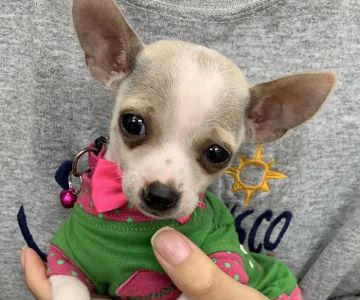High-Calorie Cat Food for Weight Gain: The Ultimate Guide
As a pet owner, there’s nothing more concerning than seeing your cat losing weight or struggling to maintain a healthy body condition. Whether your cat has been sick, is a picky eater, or simply needs to gain some extra pounds, finding the right high-calorie cat food is essential. In this article, I'll take you through the best options, why they're effective, and how you can make sure your cat is getting the right nutrients to regain a healthy weight.

7038 FL-54, New Port Richey, FL 34653, USA
See DetailsUnderstanding Your Cat's Nutritional Needs
Cats are obligate carnivores, which means they require a diet high in animal protein to maintain their health. When it comes to weight gain, it’s crucial to select foods that provide more than just basic nutrition – you want a food that offers concentrated calories and essential nutrients. While it’s easy to focus on increasing portion sizes, the right quality of food can make all the difference. In my experience, simply increasing volume isn’t always the solution; you need to ensure your cat is getting highly digestible, calorie-dense foods.
What Makes a Good High-Calorie Cat Food?
High-calorie foods are packed with both protein and fat, which provide the energy your cat needs for weight gain. Look for cat food that has at least 30-40% protein and around 20-30% fat content. Some foods also include extra calories in the form of fats and oils to boost energy intake without requiring your cat to eat large amounts. Here are a few things I consider when choosing the best high-calorie cat food:
- Protein Source: High-quality protein like chicken, turkey, or fish should be the first ingredient.
- Fat Content: Fats are a great source of concentrated energy, so look for a high fat-to-protein ratio.
- Digestibility: The food should be easy to digest so that your cat can efficiently absorb the nutrients.
- Added Nutrients: Look for foods fortified with vitamins, minerals, and omega fatty acids.
Top High-Calorie Cat Foods for Weight Gain
Now that we understand the basics, let’s dive into some of the best high-calorie cat foods I’ve found for weight gain. Whether your cat is recovering from an illness or simply needs to pack on a few pounds, these foods will help provide the nutrition needed to help them regain a healthy weight:
1. Hill's Prescription Diet a/d Urgent Care
Hill’s a/d is one of the top recommendations from veterinarians for underweight cats. It’s specifically formulated for cats recovering from illness or surgery. This food is calorie-dense and contains easily digestible ingredients, which is crucial for a cat with a compromised appetite. It includes both high-quality protein and fat to promote healthy weight gain.
2. Royal Canin Veterinary Diet Recovery
Royal Canin’s Recovery formula is another great option for cats that need to gain weight. It’s specially designed for convalescing pets and is high in calories and proteins. The formula is enriched with antioxidants and other essential nutrients that promote overall health while helping your cat regain their strength and weight.
3. Wellness CORE Grain-Free High-Protein, Low-Carb
Wellness CORE offers a high-protein, high-fat formula that’s perfect for weight gain. It’s grain-free, which is great for cats with food sensitivities. The protein content is derived from turkey, chicken, and other animal sources, ensuring your cat gets the nutrients they need. It’s a great option for picky eaters as it is very palatable.
How to Transition to High-Calorie Cat Food
Introducing new food to your cat should always be done gradually to avoid digestive upset. I recommend starting by mixing the high-calorie food with their current food and gradually increasing the ratio of the new food over 7-10 days. This method will help your cat’s stomach adjust to the new food while ensuring they get the calories they need.
Additional Tips for Encouraging Weight Gain
While food is the primary way to help your cat gain weight, there are other strategies you can use to encourage your cat to eat more:
- Feed Small, Frequent Meals: Instead of offering one large meal, provide smaller portions throughout the day to keep their metabolism active.
- Warm the Food: Warming up your cat’s food can enhance the aroma and make it more appealing.
- Keep the Food Fresh: Ensure that food is stored properly, and don’t leave it out for too long. Fresh food encourages eating.
- Limit Stress: Stress can impact appetite, so make sure your cat’s environment is calm and free from disturbances while they eat.
Conclusion
Helping your cat gain weight through high-calorie food is an essential part of ensuring their overall health and well-being. By focusing on nutrient-dense foods that provide both high-quality protein and fats, you’ll give your cat the best chance to regain a healthy weight. Always consult your veterinarian before making any major changes to your cat’s diet, especially if they are underweight due to a medical condition.










